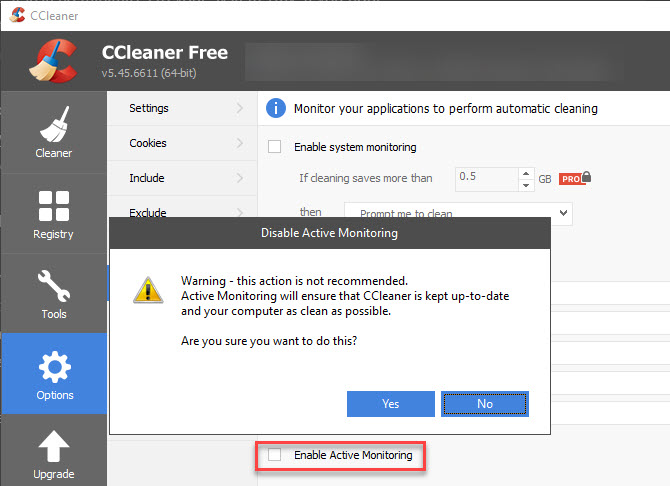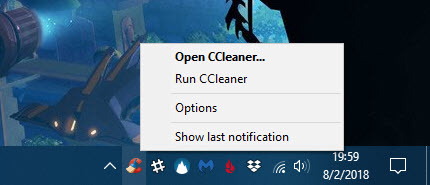Umm… It’s not that kinda unsafe, but yea! 
CCleaner, once a tidy app with no history of issues, has had several major problems in less than a year. This is unfortunately not surprising after Avast purchased CCleaner developer Piriform in July 2017.
CCleaner Silently Forces Updates
The latest CCleaner controversy comes from ignoring user preferences about checking for updates. A user on Piriform’s forums noticed that CCleaner had automatically updated on his system without his permission. As it turned out, that’s exactly what happened.
A Piriform staff member responded with the following:
“Since the release of v5.46 we have updated some users to this version to meet legal requirements and give users more autonomy and transparency over their privacy settings.”
It’s a bit ironic to claim that going into a user’s system without their permission and making changes is a move based on privacy and transparency. This is especially the case when that latest version of CCleaner has data collection options enabled by default (see the section below).
Check out the below video to see the forced update happen when installing an old version of CCleaner:
CCleaner Forcing Updates to 5.46 Even if Automatic Updates are disabled
If a user says they don’t want to get automatic software updates, the app should respect this.
CCleaner’s Monitoring
Also, CCleaner Sends “Anonymous Usage Data”

CCleaner’s biggest recent controversy came in version 5.45. This included a feature called “Active Monitoring,” a fairly standard feature that collects anonymized information about your system. You could disable it to turn the feature off—or could you?

As it turns out, if you disabled Active Monitoring in CCleaner, the software automatically re-enabled it after you rebooted or reopened CCleaner . This is extremely suspicious behavior. Though Piriform has backpedaled on it by pulling version 5.45 from the main download page for a time, upset users fled in droves.
Additionally, that version of CCleaner was much harder to quit. When you clicked the X to close the software, it instead minimized to your System Tray. If you right-clicked its icon, there was no option to exit CCleaner. This means you had to close it using the Task Manager, which novice users might not know how to do.

Thus, CCleaner now ran constantly in the background, collecting data for Avast. This is despite most people only opening CCleaner when needed, and requesting to not have this information collected.
CCleaner Distributed Malware
Prior to this, Piriform discovered that CCleaner was hacked and distributed malware. The 32-bit version was infected with a Trojan that collected information about systems it was installed on. It also had the capability to run code on affected systems.
Thankfully, the company caught it before a widespread attack could happen. But it’s pretty embarrassing that a top-tier security company like Avast had such an embarrassing slip-up.
CCleaner hacked, Replaced by Malware!
Unfortunately, in 2017 hackers successfully injected malware into the CCleaner app to distribute itself across millions of users who had CCleaner installed. 
Since its acquisition by Avast, CCleaner also shows pop-ups harassing you to upgrade to the paid version (which has an automatic cleaning feature). And installing CCleaner sometimes shows an offer to install Avast, which you must uncheck to avoid.
With all this combined, enough is enough. If you’ve had your fill of this obnoxious and shady behavior, it’s time to say goodbye to CCleaner.
What to Replace CCleaner With
The good news is that you actually don’t need CCleaner—Windows 10 has most of its functionality built-in, check out this guide to cleaning Windows 10. And you can install other tools for the rest.
- But in case you just can’t live without a dedicated cleaning app, I would recommend alternatives like atomiccleaner or BleachBit.




